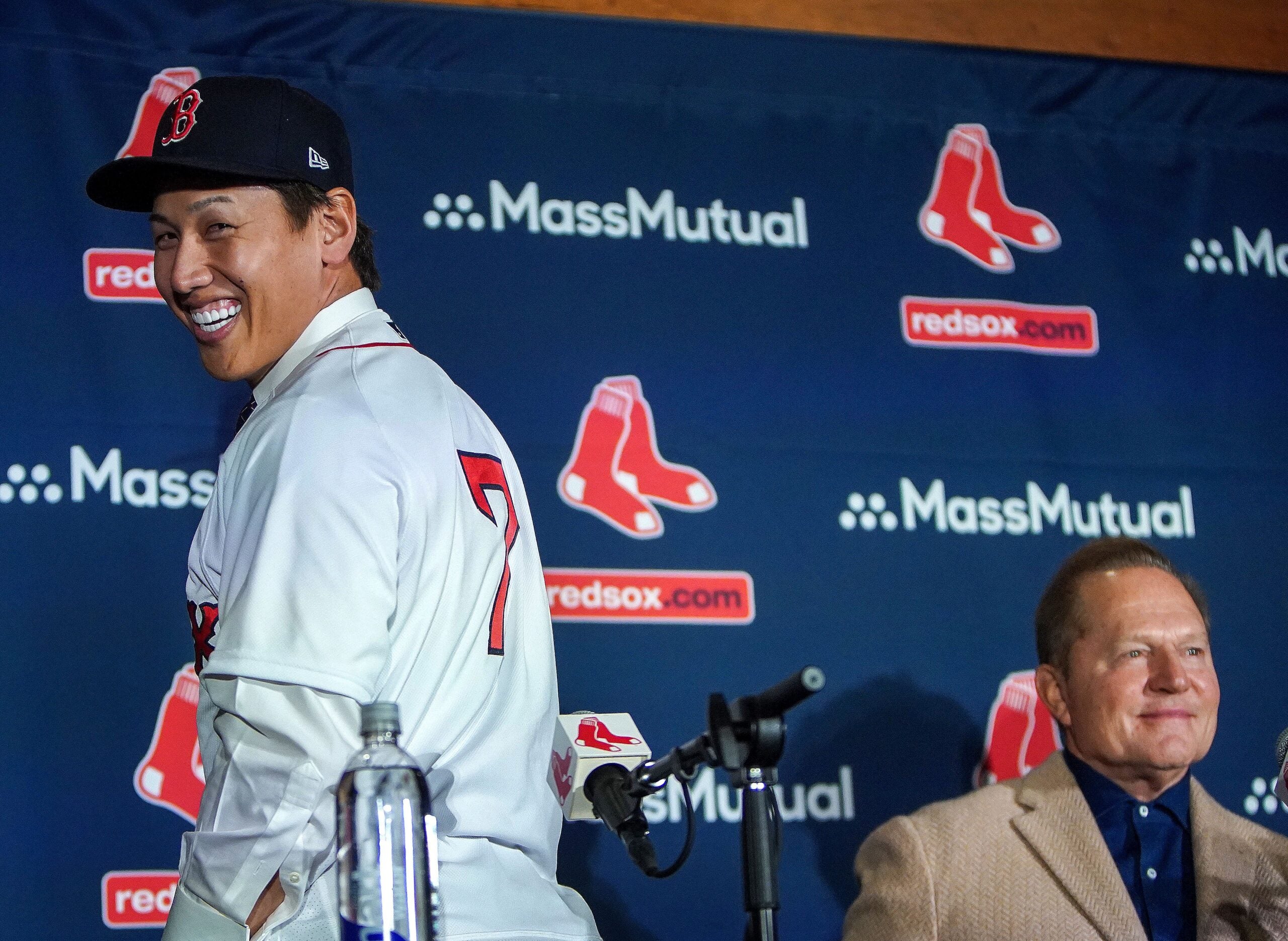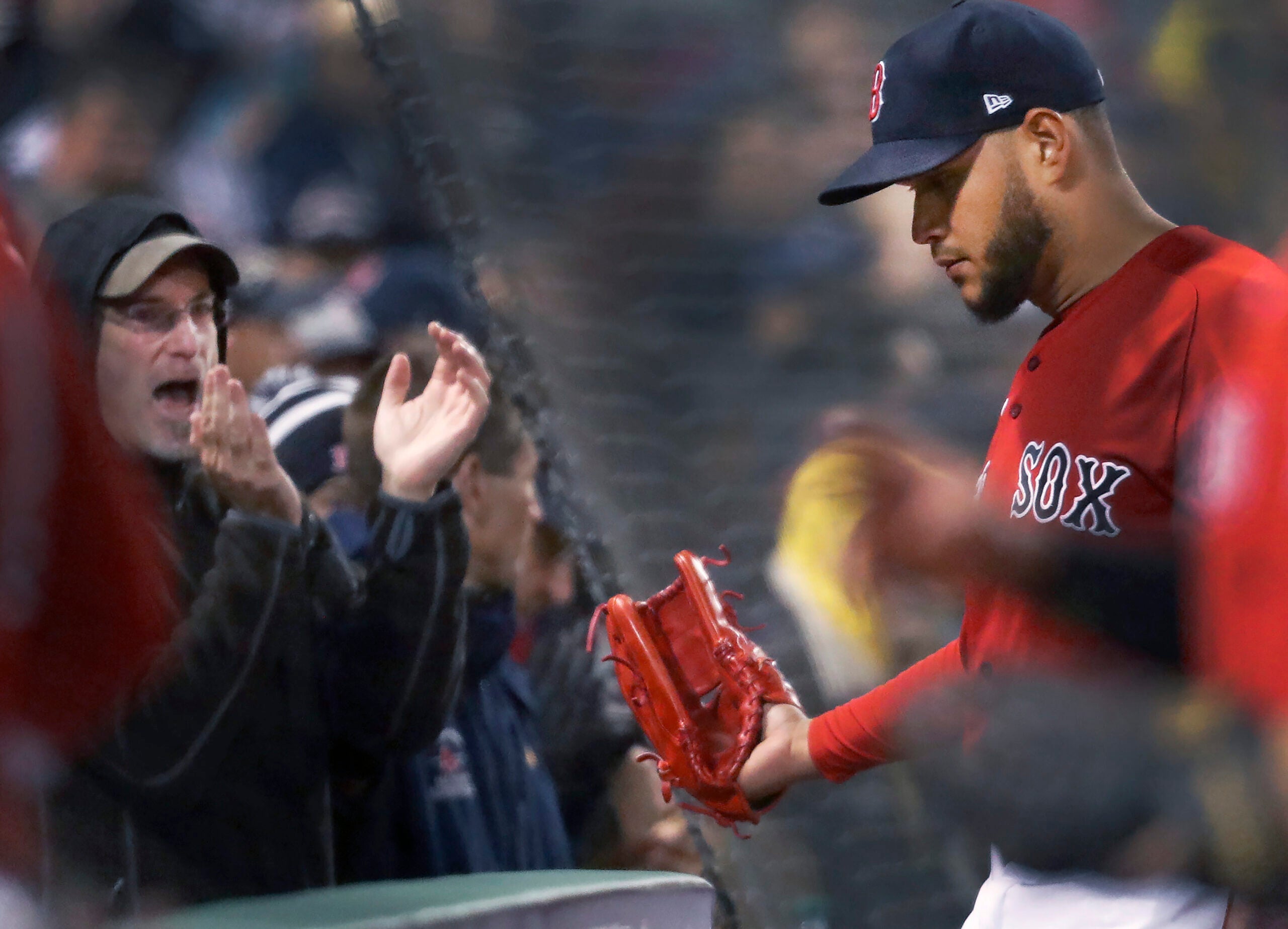There's a moment in sports history that still captures the imagination of many a fan, a turning point where one man's decision reshaped the paths of two major league baseball teams. It’s a story often told, yet the specifics, especially the sheer scale of the offer, frequently spark fresh curiosity. We're talking, of course, about the truly massive sum the Boston Red Sox put on the table for Billy Beane, the innovative general manager of the Oakland Athletics, back in 2002.
This was a period when the Red Sox, a team with a long history but also a long championship drought, sought a drastic shift. They looked to the very person who had challenged baseball's old ways, a figure who showed everyone how a small-market team could compete with the big spenders by using data and a sharp mind. It was a bold move, a very public attempt to bring the architect of "Moneyball" to Fenway Park.
So, what was the actual figure? What kind of financial commitment did the Red Sox make to try and lure him away? This article will reveal the exact amount, exploring the significance of such a proposition and why, in the end, Beane chose a different path. It's a tale of loyalty, innovation, and a choice that still resonates through the sport even today.
Table of Contents
- Billy Beane: A Brief Look at His Journey
- The Baseball World in the Early 2000s
- The Red Sox's Search for a New Vision
- The Unprecedented Offer from Boston
- Why the Offer Was So Significant
- Why Billy Beane Said No to the Red Sox
- The Aftermath and Lasting Impact
- People Also Ask (FAQs)
Billy Beane: A Brief Look at His Journey
Billy Beane's name is practically synonymous with a revolution in baseball, but his own playing career, interestingly enough, didn't quite hit the heights many predicted. Drafted as a promising young player right out of high school, he had a brief stint as an outfielder in the major leagues. His time on the field, though, wasn't what would make him famous. It's almost ironic, you know, that someone who struggled as a player would go on to redefine how players are valued.
After his playing days, Beane moved into the front office of the Oakland Athletics, starting as a scout. He quickly rose through the ranks, eventually becoming the general manager in 1997. It was in this role that he, along with assistant GM Paul DePodesta, began to challenge traditional scouting methods. They looked at player evaluation in a very different way, focusing on statistics that were often overlooked, like on-base percentage. This approach, often called "sabermetrics," allowed the A's, a team with a small budget, to compete with richer clubs. It really changed the game, in a way, for many teams.
Personal Details and Bio Data
| Full Name | William Lamar Beane III |
| Born | March 29, 1962 (age 62 as of 2024) |
| Birthplace | Orlando, Florida, U.S. |
| Role | Executive Vice President of Baseball Operations, Oakland Athletics |
| Previous Roles | General Manager, Assistant General Manager, Scout, Player |
| Known For | Pioneering "Moneyball" approach in baseball, data-driven player evaluation |
The Baseball World in the Early 2000s
The turn of the millennium in baseball was a time of significant financial disparity. Some teams, like the New York Yankees or the Boston Red Sox, commanded huge payrolls, allowing them to sign the biggest stars and essentially buy championships. Other teams, particularly those in smaller markets, struggled to keep pace. They often lost their best players to richer clubs and found it incredibly difficult to build a consistent winner. This created a rather uneven playing field, so to speak, for many organizations.
Amidst this landscape, the Oakland Athletics, under Billy Beane, were doing something truly remarkable. They were consistently winning, even making the playoffs, with one of the lowest payrolls in the league. Their method was revolutionary: they didn't rely on the traditional wisdom of scouts or the "eye test." Instead, they crunched numbers, looking for undervalued players who could get on base or prevent runs in ways that the rest of the league just wasn't seeing. This approach was, you know, a very big deal and made a lot of people sit up and take notice.
The A's success became a compelling argument against the idea that you needed a huge budget to win. Their story, later famously told in Michael Lewis's book "Moneyball," really showed that smart thinking could beat raw spending power. Other teams, feeling the pressure to compete, started to look for ways to replicate this success. It was a fascinating time, actually, for baseball strategy.
The Red Sox's Search for a New Vision
For the Boston Red Sox, the early 2000s brought a change in ownership and a renewed hunger for a World Series title, something that had eluded them for a very long time. The team had a passionate fan base but also carried the weight of the "Curse of the Bambino," a historical drought that seemed to haunt them. The new ownership group, led by John Henry and Tom Werner, wanted to break from the past and build a truly modern, successful organization. They really needed a fresh start, in some respects.
They understood that simply throwing money at the problem wasn't a guarantee of success, though they certainly had the financial means to do so. They wanted a general manager who could bring a new way of thinking, someone who could build a sustainable winner, not just a temporary one. Their search eventually led them straight to the person who was making waves in Oakland, the one who had proven that innovation could overcome financial limitations. It was a clear sign that they were looking for a completely different kind of leadership, something that truly mattered to their future.
The Red Sox saw what Beane had built with the A's: a team that consistently outperformed expectations, identifying talent where others saw flaws. They recognized that his analytical approach was not just a gimmick but a powerful tool for success. They believed he was the person who could finally lead them to that long-awaited championship. This pursuit was, you know, a very clear signal of their ambition and their desire to change things fundamentally.
The Unprecedented Offer from Boston
So, the moment everyone wonders about: the exact figure. The Boston Red Sox, in their determined effort to bring Billy Beane to their organization, offered him a truly staggering sum. It was, at the time, the largest offer ever made to a general manager in baseball history. They put a five-year contract on the table, valued at a remarkable $12.5 million. This was, by any measure, a great quantity of money, an amount that showed the extent of their desire to have him. As my text says, the meaning of "much" is "great in quantity, amount, extent, or degree," and this offer certainly fits that description.
To put this in perspective, most general managers at that time were earning salaries in the hundreds of thousands, perhaps just over a million dollars a year for the very top people. Beane's proposed salary would have been $2.5 million annually, which was more than double what any other GM was making. It was even more than what some star players were earning. This was, in a way, an almost unbelievable amount for a front-office position, showing just how highly the Red Sox valued his unique abilities.
The offer wasn't just about the money, though that was a huge part of it. It also came with significant control over baseball operations, giving Beane the kind of power and influence he had in Oakland, but with a much larger budget to work with. It was, you know, a truly comprehensive package designed to make him an offer he simply couldn't refuse. The Red Sox were basically saying, "Name your price, within reason, and we'll meet it, because we believe you are the person to turn this team around."
Why the Offer Was So Significant
The Red Sox's offer to Billy Beane was more than just a large sum of money; it was a profound statement about the changing landscape of baseball. First, it showed that ownership groups were starting to recognize the immense value of a strong, innovative front office. It wasn't just about the players on the field anymore; the people making the decisions behind the scenes were just as important, if not more so, for long-term success. This was a pretty big shift in thinking, really.
Secondly, the size of the offer highlighted the revolutionary impact of Beane's "Moneyball" approach. The Red Sox, a traditionally old-school organization, were essentially admitting that the analytical methods pioneered by the A's were the future of the game. They were willing to pay a truly great quantity for the mind behind this new way of thinking. It was, you know, a powerful endorsement of sabermetrics and its potential to build winning teams, even for a club that had been stuck in its ways for a long time.
Finally, the offer symbolized a desperate desire for change within the Red Sox organization. They weren't just looking for a good GM; they were looking for a savior, someone who could break the curse and bring a championship to Boston. The $12.5 million was a clear signal of their urgency and their belief that Beane was the only person who could deliver on that promise. It was, basically, a gamble, but one they felt was necessary to turn things around for good. Learn more about baseball analytics on our site, for instance, and see how much things have changed.
Why Billy Beane Said No to the Red Sox
Despite the truly massive financial incentive and the chance to manage a team with a much larger budget, Billy Beane made the surprising choice to turn down the Red Sox's offer. This decision puzzled many at the time, as it seemed like a career-defining move for anyone in his position. There were, however, several deeply personal and professional reasons behind his refusal, and they speak volumes about the kind of person he is. It's almost, you know, a testament to his character.
One of the main reasons was his strong loyalty to the Oakland Athletics. Beane felt a deep connection to the organization and the people he worked with. He had built something truly unique there, a team that defied expectations year after year with limited resources. He felt a responsibility to see that project through, to continue proving that his methods could succeed against all odds. It was, basically, his baby, and he wasn't ready to abandon it, even for a truly staggering amount of money.
Another significant factor was his family. Beane's daughter was still in school in California, and he didn't want to uproot her life and move across the country. The stability and familiarity of his home life were very important to him, and he prioritized that over the career advancement and financial gain offered by Boston. This personal consideration, honestly, played a very large part in his choice, showing that some things just matter more than money.
Finally, there was the challenge itself. Beane thrived on the underdog mentality, on proving that you could win without a huge payroll. Moving to a big-market team like the Red Sox, with their immense resources, might have felt less challenging, less like the kind of puzzle he enjoyed solving. He was, in a way, comfortable in his role as the innovator, the one who constantly pushed the boundaries with fewer tools. This kind of drive, you know, often defines people who truly change things.
The Aftermath and Lasting Impact
Billy Beane's decision to stay with the Oakland Athletics had immediate and long-lasting consequences for both organizations. For the A's, it meant continuity in their innovative approach. Beane continued to lead the team, refining his Moneyball strategies and maintaining their competitive edge despite financial constraints. While they haven't won a World Series under his leadership, their consistent ability to contend with a small budget has solidified their reputation as one of baseball's most analytically driven teams. It's really quite remarkable, in some respects, what they have achieved.
For the Boston Red Sox, Beane's refusal forced them to look elsewhere, and they eventually hired Theo Epstein as their general manager. Epstein, a young, bright mind, had actually worked under Beane in Oakland for a short period, so he understood the analytical approach. Under Epstein's leadership, the Red Sox adopted many of the principles Beane championed, combining them with their significant financial resources. This blend proved to be incredibly successful. Just two years after Beane turned them down, the Red Sox broke their 86-year championship drought, winning the World Series in 2004. This was, you know, a truly historic moment for the team and its fans.
The ripple effect of this pivotal moment extended far beyond these two teams. Beane's public refusal of such a great quantity of money, coupled with the Red Sox's subsequent success using similar analytical methods, cemented "Moneyball" as a legitimate and powerful strategy in baseball. Teams across the league began to invest in analytics departments, hiring bright minds to crunch numbers and find undervalued assets. The game, quite simply, changed forever. You can actually see the influence everywhere now, in how teams build their rosters and approach player development.
Looking back, Beane's decision highlights the complex interplay of personal values, professional ambition, and the evolving nature of a sport. His choice, while surprising to many at the time, ultimately underscored his dedication to his unique vision and the organization he helped build. It also, in a way, set the stage for one of baseball's most memorable championship runs. For more on how front offices operate, you can check out this page about sports management, which might give you some extra context.
People Also Ask (FAQs)
Here are some common questions people often have about Billy Beane and the Red Sox offer:
What was the specific amount of the offer from the Red Sox to Billy Beane?
The Boston Red Sox offered Billy Beane a five-year contract worth $12.5 million to become their general manager. This was, in 2002, the largest financial offer ever made to a baseball general manager, truly a very significant sum for the time. It really showed their commitment, you know, to getting him.
Why did Billy Beane turn down such a large offer from the Red Sox?
Billy Beane turned down the Red Sox's offer for several reasons, including deep loyalty to the Oakland Athletics and a desire to continue the "Moneyball" project he started there. His family's stability was also a major factor, as he didn't want to move them from California. He also, basically, thrived on the challenge of competing with a small budget.
What happened to the Red Sox after Billy Beane declined their offer?
After Billy Beane declined their offer, the Boston Red Sox hired Theo Epstein as their general manager. Epstein, who had some experience with analytical methods, went on to lead the Red Sox to a World Series championship in 2004, breaking their long-standing curse. It was, you know, a very important moment for the team's history.



Detail Author:
- Name : Ms. Lizzie Stokes
- Username : hbeatty
- Email : hoppe.curt@harris.biz
- Birthdate : 1978-08-23
- Address : 12196 Beth Points Suite 941 Brakusmouth, ID 67371
- Phone : 1-470-276-6939
- Company : King Ltd
- Job : Healthcare Practitioner
- Bio : Ut sed minima sed voluptas saepe expedita. Saepe est impedit rerum libero tempora corporis. Est sit necessitatibus inventore et. Vel fuga ea adipisci et blanditiis qui.
Socials
tiktok:
- url : https://tiktok.com/@emarks
- username : emarks
- bio : Molestias consequatur explicabo quidem reprehenderit.
- followers : 3760
- following : 833
facebook:
- url : https://facebook.com/markse
- username : markse
- bio : Distinctio repellat excepturi deserunt labore.
- followers : 1014
- following : 1012
linkedin:
- url : https://linkedin.com/in/elva_marks
- username : elva_marks
- bio : Eos sint et ut sed sint est itaque.
- followers : 5026
- following : 2872
instagram:
- url : https://instagram.com/elva4091
- username : elva4091
- bio : Ut omnis deserunt non qui. Blanditiis sapiente quo aut adipisci doloremque quasi.
- followers : 1006
- following : 529